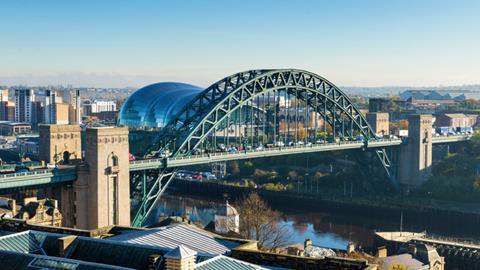An increasing number of Far Eastern investors – particularly those based in Hong Kong – are targeting UK High Street property investments to provide immediate returns and a ‘safe haven’ for their capital, according to new research.

Property consultancy Bruce Gillingham Pollard (BGP), which has advised on more than £100 mln (€114 mln) of this type of investment for far eastern investors, reported: 'Traditionally focused on London, investors from the Far East are widening their property search to other regions and cities in the UK as they look to benefit from strong yields and take advantage of the weak pound.
'They are attracted by the ability of the assets to provide immediate returns and a ‘safe haven’ for their capital.'
It is estimated that the trend has generated more than £700 mln of investment into High Street retail assets in a wide range of locations including Oxford, Cambridge, Birmingham, Exeter, Chichester and Lincoln.
BGP’s Head of Investment, Jack Barratt, commented: 'There’s obviously been a lot said over the past few years about the decline of our high streets but many overseas investors are taking advantage of the ongoing repricing of assets and stronger currency positions, which has given them a competitive advantage against UK buyers and large institutions who are more sensitive to debt and often have shorter-term investment horizons.
'As a result, international investors have accounted for almost fifty percent of all High Street transaction volumes since the start of the pandemic.
'They see relatively affluent towns and cities whose shops are populated with retailers as strong counter-cyclical investments. As we come out of possibly the strangest three years in retail history, generally our investor base believe that the retail market is resilient, with many brands having reduced the size of their store portfolios and the UK consumer having re-connected with shopping in-store.'
The Far Eastern buying trend is taking place generally outside of London and is focused on successful cathedral cities and market towns. Shops occupied by convenience brands such as Boots, Tesco and building societies, are among those which have been recently bought by overseas investors.
Added Barratt: 'In part this reflects the fact that that the UK real estate market is more liquid than other European markets, has been re-priced quicker, and has reduced barriers of entry for overseas investors.
'However, these buyers are very discriminating in their requirements. They have a clear sense of what sort of asset they want to buy, its situation within an established shopping area and the price range that they are prepared to pay.
'These investments can generate immediate returns of typically 6-10% off re-based rents, some of which are now around half of what they were at the height of the market. But perhaps most importantly, in an increasingly uncertain world, they provide an immediate safe haven for capital.
'The political and social situation in Hong Kong remains complex and it is not surprising that some investors are looking to place a proportion of their capital in other global locations.'
Earlier this month, INREV – which tracks international flows of investment into real estate – reported that in 2022 Asian Pacific investors were, for the first time, the main source of capital globally and accounted for around 35% of the €246 bn of capital raised for non-listed real estate investment.










